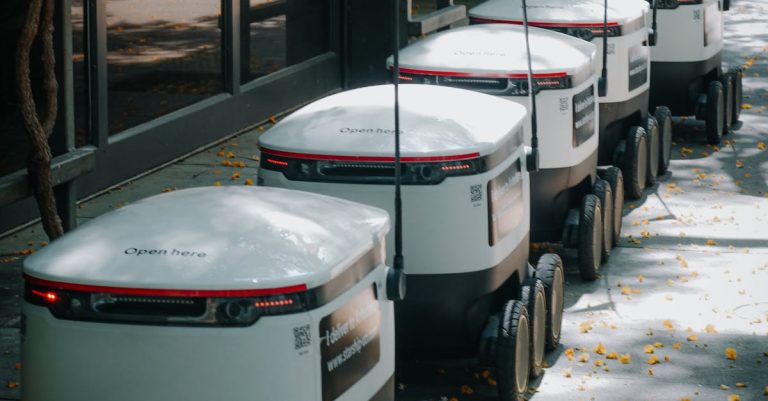Introduction
Artificial Intelligence (AI) has rapidly evolved from a futuristic concept to a fundamental part of our everyday lives. From smart assistants to predictive recommendations, AI is shaping the way we live, work, and interact with the world. But what does the future hold?
As AI technologies become more sophisticated and integrated, their impact on daily life will become even more seamless—and transformative. In this post, we explore how AI is set to revolutionise our day-to-day routines, the industries it will reshape, and the ethical and social considerations that come with it.

Whether you’re a tech enthusiast, business leader, or everyday consumer, this guide offers valuable insights into the future of AI in daily life.
What Is AI and Why It Matters
Artificial Intelligence refers to machines and software that can perform tasks typically requiring human intelligence. This includes learning from data, recognising patterns, making decisions, and even understanding natural language.
Core AI technologies driving change:
- Machine learning (ML)
- Natural language processing (NLP)
- Computer vision
- Robotics
- Predictive analytics
As these technologies evolve, AI is moving from the background to the foreground of everyday human experience.
AI at Home: Smarter Living Spaces
AI is transforming our homes into intelligent ecosystems that anticipate our needs and automate routine tasks.
Key examples:
- Voice assistants like Alexa, Siri, and Google Assistant manage calendars, control appliances, and answer questions
- Smart thermostats learn your habits and adjust temperature for comfort and energy efficiency
- AI-powered security systems use facial recognition to identify visitors and detect suspicious activity
- Home robots (e.g., robotic vacuum cleaners) clean and maintain spaces autonomously
In the future, expect homes to operate like personal butlers—learning preferences, reducing energy use, and managing daily schedules seamlessly.
AI at Work: Redefining Productivity
From automating repetitive tasks to enabling data-driven decision-making, AI is reshaping how businesses operate and how individuals work.

AI applications in the workplace:
- AI-driven chatbots handle customer service 24/7
- Natural language tools summarise meetings and generate content
- Recruitment AI shortlists candidates based on skills and experience
- Predictive tools anticipate market trends, customer behaviour, and inventory needs
As AI takes over time-consuming processes, professionals can focus on creative, strategic, and human-centric work.
AI in Healthcare: Smarter, Faster Diagnosis
One of the most exciting frontiers for AI is healthcare. The integration of intelligent systems is helping detect diseases earlier, personalise treatment, and reduce diagnostic errors.
Examples of AI in healthcare:
- Medical imaging AI identifies early signs of cancer or abnormalities
- Wearable devices track health metrics and alert users to anomalies
- Virtual health assistants support chronic condition management
- AI algorithms help design treatment plans based on patient data
In the future, AI will play a central role in preventive care, remote monitoring, and even robotic surgeries.
AI in Mobility and Transportation
AI is already at the core of smart mobility solutions—and the coming decade will see even more disruption.
Current and future developments:
- Self-driving vehicles are becoming more advanced, with major progress from companies like Tesla and Waymo
- AI traffic management systems optimise city traffic flow in real time
- Predictive maintenance tools reduce vehicle downtime and accidents
- Personalised route planners factor in real-time data for efficient travel
Expect safer, faster, and more personalised transport experiences powered by AI.
AI and Entertainment: Personalised Everything
Streaming platforms and gaming are early adopters of AI—but we’re only scratching the surface.

AI-powered entertainment:
- Recommendation engines on Netflix, Spotify, and YouTube tailor content to user preferences
- AI in gaming creates smarter, more dynamic NPCs and personalised storylines
- AI art and music generators enable new forms of creative expression
- Augmented reality (AR) and virtual reality (VR) experiences are enhanced with AI for immersive realism
In the near future, entertainment will feel like it was made just for you—because it will be.
AI in Education: Custom Learning Paths
AI is also making waves in education, helping personalise learning and close accessibility gaps.
AI-enhanced learning:
- Adaptive learning platforms tailor content to student pace and comprehension
- AI tutors and chatbots provide on-demand help
- Language learning tools use NLP for real-time corrections and feedback
- Predictive analytics identify students at risk of falling behind
The future of education will be more accessible, flexible, and effective—thanks to intelligent tools.
Ethical Considerations: Balancing Innovation with Responsibility
While the promise of AI is vast, it comes with important challenges that must be addressed.

Key concerns:
- Bias in algorithms due to flawed data
- Privacy issues from constant data collection
- Job displacement as automation grows
- Over-reliance on AI in decision-making
As AI becomes embedded in daily life, ethical frameworks and regulations will be crucial to ensure fair, transparent, and inclusive technology development.
Conclusion
AI is no longer a futuristic concept—it’s a present-day force that’s evolving rapidly. From smarter homes and workplaces to revolutionary healthcare and transport systems, AI is reshaping how we live, work, and connect.
As we move into the next decade, staying informed about AI’s capabilities—and its challenges—will be essential. Embracing this technology thoughtfully can lead to a more efficient, personalised, and empowered daily life.
Next step:
Explore how AI already touches your daily routine. What tools do you use now, and where can smart tech help you work smarter or live better?













